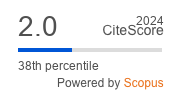Doctoral degree in health professions: Professional needs andlegal requirement*
DOI:
https://doi.org/10.5644/ama2006-124.72Keywords:
Education, Nursing, Postgraduate, Nurses, Health occupationsAbstract
To respond to ever increasing complexity of health care professions, education of nurses, midwives, physiotherapists, radiology engineers, and medical laboratory workers, has been upgraded to pregraduate, graduate and postgraduate university levels. In Croatia, nursing was defined as a branch of clinical medical science in 1997. Croatia and Bosnia and Herzegovina have introduced first two levels, but there is a strong need for the third one (doctoral degree). It should last three years and contain 180 ECTS points. It includes acquisition of evidence-based advanced health care, and the ability for independent research and critical analysis. Doctoral degrees in health professions are instrumental for academic careers of faculty of health professions. Yet this will not separate them from their patients or make them administrators, as the majority of their work will still be spent alongside patients. *Translated by permission from Croatian version Marušić M, Mimica M, Mihanović F, Janković S. Doktorat iz zdravstvenih znanosti: stručne potrebe i zakonske zadanosti. Medix. 2012;18(103):169-74Downloads
Download data is not yet available.
Downloads
Published
2013-05-17
How to Cite
Marušić, M., Mimica, M., Mihanović, F., & Janković, S. (2013). Doctoral degree in health professions: Professional needs andlegal requirement*. Acta Medica Academica, 42(1), 61–70. https://doi.org/10.5644/ama2006-124.72
Issue
Section
Review Articles





